يحاول ذهب - حر
Slugs And Snails
November 2018
|The Gardener
Mitigating the menace of maraudingmolluscs.

Slugs and snails are the bane of the gardener, and also wreak havoc on a host of agricultural and horticultural crops. These common pests are classed as gastropods in the mollusca (mollusc) phylum that also includes squid, cuttlefish and octopuses, as well as others. The only difference between a slug and a snail is that the snail has a spiral shell into which it retreats.
Other than the presence of chewed plants, one of the tell-tail signs that slugs and snails have been marauding in your garden is the silvery mucus trail they leave behind. The mucus is secreted by the muscular foot, to aid its movement.
Slugs and snails are hermaphrodites; that is they have both male and female sex organs, so anyone individual you may find has the potential to lay eggs. The eggs are laid in clusters in the soil, beneath leaves or in other areas where the soil is damp. They may be opaque, white or yellowish-brown in colour. Depending on the species, several clusters may be laid during the year. The eggs take 1 – 2 weeks to hatch, depending on the species, but may lay dormant in the soil for months and hatch only when conditions are suitable.
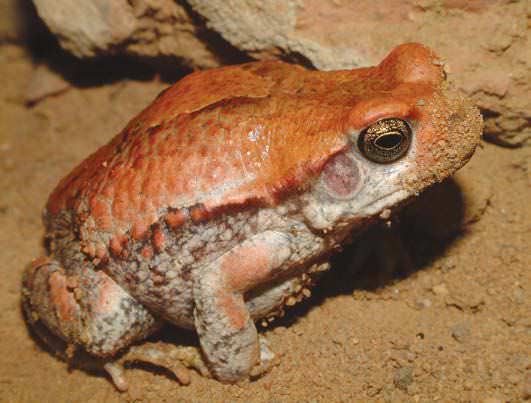
Damage
These marauding molluscs are nocturnal by nature, emerging under the cover of darkness to feast on decaying matter, living plants, flowers, ground fruits such as strawberries and tomatoes, citrus fruits and even the young bark of trees. Evidence of slug or snail damage is large, ragged holes chewed in leaves, leaves with scalloped edges, or seedlings that have been completely stripped of their leaves and reduced to a bare stem.
هذه القصة من طبعة November 2018 من The Gardener.
اشترك في Magzter GOLD للوصول إلى آلاف القصص المتميزة المنسقة، وأكثر من 9000 مجلة وصحيفة.
هل أنت مشترك بالفعل؟ تسجيل الدخول
المزيد من القصص من The Gardener

The Gardener
Preserving apples
The end of the apple season means that apples need to be preserved for the next six months until the next harvest is ready.
3 mins
July/August 2025
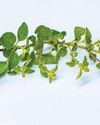
The Gardener
Golden Oregano
Origanum vulgare ‘Aureum’, as its name suggests, is golden yellow in full sun and cool weather. These bright herbs are highly fragrant, with a classic oregano taste and aroma, and are often used in the kitchen for pasta and pizza. In summer, the yellow leaves will be covered with small pink and purple flowers.
1 min
July/August 2025
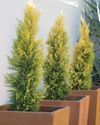
The Gardener
Potting up a conifer
Conifers generally are well-behaved plants with interesting, evergreen foliage and mostly formal and neat growth habits. This makes them stately candidates for roomy containers.
1 mins
July/August 2025
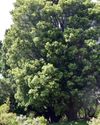
The Gardener
Enduring and venerable trees
There cannot ever be a good reason not to plant a tree, and somewhere there is just the right tree for you...
3 mins
July/August 2025
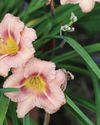
The Gardener
Daylilies make a comeback
Daylilies are making a comeback in 2025 with even more shapes, twists, ruffles, pleats, picotees, curves, and stunning colours and colour combinations. There are singles and doubles, big and small flowers, each unique, and yes, they only last a day! They do, however, have another flower bud just behind that one, ready to show off the next day.
1 min
July/August 2025
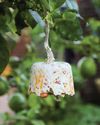
The Gardener
How to make a fat ball
Some birds love a fat ball in winter to boost their energy levels. These are easy to make and a fun project to do with the kids.
1 min
July/August 2025

The Gardener
The Princess and Obsession
It only takes two wonderful modern hybrids of old garden favourites to prepare a garden and containers for an unforgettable spring performance.
1 mins
July/August 2025
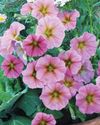
The Gardener
Pink and pretty
Pink colour shifters with hot appeal...
2 mins
July/August 2025

The Gardener
GROW the WALL
If you want lots of flowers in plantable concrete retaining wall blocks or lush stems and foliage cascading over dry stone walls, we have good plant suggestions for you!
5 mins
July/August 2025

The Gardener
Winter indoor plant care
Winter can be a tough time for your houseplants; a drop in natural light, drier air, and cold drafts can all influence their lush appeal. As plant lovers, spending more time indoors in winter creates opportunities to keep a close eye on your leafy companions and make some changes to avoid these common winter blues.
1 min
July/August 2025
Translate
Change font size

